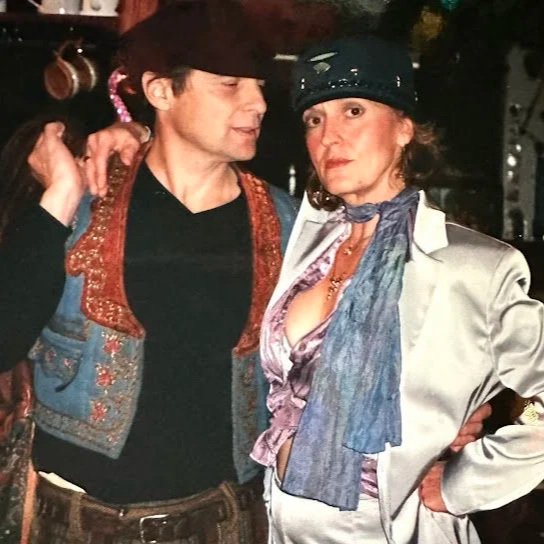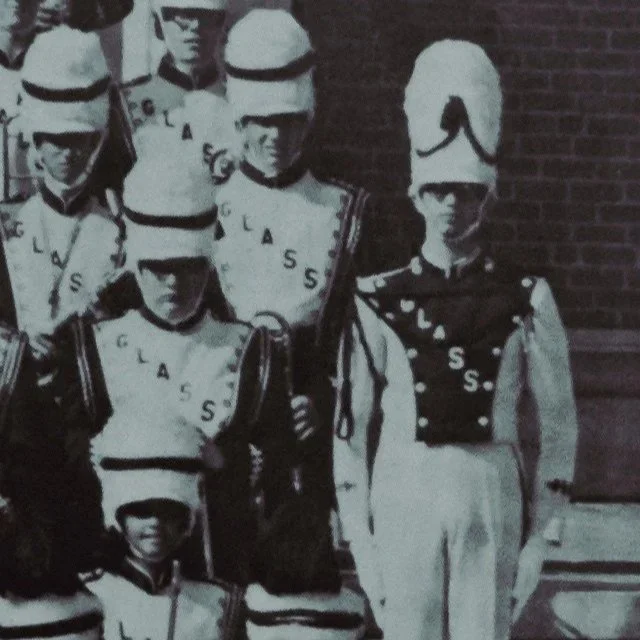why attack iran?
This is an excerpt from historian Timothy Snyder’s Substack, Thinking About … You can read the full post here.
Given the stupefyingly overt corruption of the Trump administration, one must ask whether the United States armed forces are now being used on a per-hire basis.
Gulf Arab states who oppose Iranian power have generated extremely generous packages of compensation for companies associated with Trump personally and with members of his family. The United Arab Emirates invested in a family firm. The Saudis have provided numerous de facto gifts. And sometimes the gifts have been simply gifts. The Qataris gave Trump a jet. The list is very long.
And now—we are using military force to take the side of precisely the countries who have enriched Trump and his family. …
armed and dangerous
It’s not the first time, nor the second, third or fourth. In our lifetime, since the end of World War II, America’s new attack on Iran is something we have seen before: a bellicose flexing of our power and an inclination to bully other nations that we don’t like—sometimes, even, with good reason.
America wasn’t always that way. For 150 years of so, with a few exceptions—the Spanish-American War and the Mexican-American War prime among them—we avoided militarily interfering with other countries. We weren’t a superpower then, of course; we didn’t have the capacity to strike far beyond our borders or perhaps that sense of unrestrained impunity that went with it.
That has not been the case for the last 75 years. We definitely have flexed and are continuing to. …
Our Greatest Hits: Modernism and the Hippies
One of the subjects I’ve hoped this website might investigate is where the ideas that so galvanized Our Generation, back when we were more galvanizable, originated. I call that mix of ideas “hippy thought,” and I mean by it the multiple challenges to “straight” understandings and values promulgated by anti-Vietnam War, marijuana-smoking, LSD-curious, ripped-blue-jean-wearing, rock-‘n’-roll-dancing young people in the late 1960s and 1970s.
I suspect many of the ideas that filled our heads back then are still contributing to the way we look at the world today. That does at least seem to be the case for the way I look at the world, although you wouldn’t necessarily know it from the way I’ve spent the last five decades.
Previous installments of this investigation—this is the introduction to it— have considered the influence of Whitman and Thoreau, and of the Beatniks. Here I want to look at the influence of something that would not have come to mind back in the day as readily as Whitman, Thoreau and the Beatniks: modernism. . . .
fURTHER reading about Our Generation
Here’s some of what we have seen recently that might be of particular interest to our generation. (Apologies for any pay walls.) Send us what you have seen at WritingAboutOurGeneration@gmail.com.
“Older Americans Quit Weight-Loss Drugs in Droves,” Paula Span, New York Times, Dec. 21, 2025
“The 10 Best Bob Weir Songs,” Michael Nelson, Stereogum, Jan. 12, 2006
“Becoming a Centenarian,” Calvin Tompkins, The New Yorker, Dec. 15, 2025
“Can we save travels most beloved tradition?” Asia London Palomba, BBC, Dec. 12, 2025
“Psychology says people raised in the 1960s and 70s developed these 8 mental strengths that are rare
today,” Lachlan Brown, VegOut, Dec. 4, 2025
“The Phone-Based Retirement Is Here. Do your parents have a screen-time problem?” Charlie Warzel, The Atlantic, Dec. 23, 2025
“Thanks a Lot, Boomers,” Emily Holzknecht and Binyamin Appelbaum, New York Times, Oct. 17, 2025
The fear of an Organized Left
This is an excerpt from Paul Waldman’s Substack, The Cross Section. You can read the full post here.
“You’re doing it wrong” is what conservatives have always said about protests from the left, whether it was the civil rights movement or the feminist movement or the environmental movement or the gay rights movement. The claim is usually that the actions are too unruly, and if they were more polite then we might deign to hear your concerns, but since you’re being so rude you must be dismissed out of hand.
The problem, conservatives now say, is precisely that what’s happening in the streets is too organized to be legitimate. If you libs were just wandering around aimlessly, that would be fine. But because you’re planning, strategizing and coordinating, that means it’s somehow not a genuine expression of public sentiment. It’s not real democratic participation; it’s something sinister. …
To many conservatives, this is inherently suspicious. How, they ask, could this possibly be real? Someone has to be paying them! But as a number of people have pointed out, women in particular are called upon to plan and execute complex activities involving many people on a volunteer basis all the time …
the state of This Union
Maybe there’ll be a good movie on Apple TV. Well, really doesn’t matter if it’s any good.
We finished “Poker Face” on Peacock, but maybe there’s something else we could find there. Really doesn’t matter what.
And of course there’s always Netflix. It must have something reasonably viewable.
Then again, I could read my book. It’s a family saga, about the Gangulis, by Jhumpa Lahiri. Could easily kill a couple of hours with that.
Or I could do some cooking or some cleaning of the house or attempt some decluttering or go for a walk or get on the exercise bike if it’s raining or … do pretty much anything.
Anything instead of watching tonight’s State of the Union address. …
is rock dead?
That thumping soundtrack of our lives, the guitar-based music most of us grew up with, the music of Elvis and the Fab 4 and the Stones and the Boss, the music we listened to as kids on our transistors and some of us still listen to on our Spotify, is it gone? Has it left the building?
I got to thinking about this recently, when someone pointed out that the Super Bowl halftime show, the prototypical gauge of American sensibilities, which this year featured the Puerto Rican star Bad Bunny, hadn’t featured an out-and-out rock act since … 2016. (Incidentally, the rock act was Coldplay; yeah, I’m not sure I could identify their music either.).
I also got to thinking about it when my friend Mitch mentioned that his 11-year-old middle-class white grandson listens to rap. When I was 11, I listened to Jerry Lee Lewis and there was a whole lotta shaking going on. …
Our Greatest Hits: the 10 Biggest Changes in the United States in Our Lifetimes
We have lived and are still living through tumultuous times. The America we inhabit today in many ways bears scant resemblance to the post-World War II world into which we were born.
So much has changed that it’s hard to fully grasp, let alone place it in any kind of order. But we have had a go at it. Here is our list, in ascending order, of the ten biggest changes in American life our generation has seen.
What did we get wrong?
“jesse can’t swim!”
The Rev. Jesse Jackson, who died on Tuesday, was a publicity hound—but so is any politician worthy of the name.
He also was a powerful voice for the have-nots in American society, especially those of color. “My constituency is the desperate, the damned, the disinherited, the disrespected and the despised,” he said from the pulpit—actually the podium of the Democratic National Convention in San Francisco—in 1984.
I was in the hall that evening as a reporter and, like everyone else, was moved by Jackson’s soaring, heartfelt words. I also spent part of that presidential campaign year traveling with him both in the U.S. and abroad. Seeing him when the TV lights were off and no one else was around, I grew to better understand him, respect him—and like him….
the rise of “wrap rage”
In the fall of 1982 Edmund R. Donoghue, chief medical examiner for Cook County, Ill., asked one of his investigators to smell an open bottle of Tylenol capsules at a possible crime scene.
When the investigator, Nick Pishos, detected the aroma of bitter almonds, he and his boss were all but certain that the bottle contained potassium cyanide, and that the cyanide was most likely contained in the bottle’s Tylenol capsules. They also concluded—and lab analysis later confirmed—that the capsules had just killed three people in the same family.
What they could not know was that their discovery would change forever the way nearly all products—not just medicines--would be packaged and sold all over the world.
They could not foresee the phenomenon of “wrap rage.” …
The Books That Most Influenced Us
Although we spend much of our time these days glued to a screen, books still do play a role in our lives. If nothing else, they provide great living room décor.
And while their importance may have been diminished by our current slavish devotion to the digital world, books — particularly for the baby boom generation — have changed how we think, talk, write, vote, teach, learn and — maybe most important — how we see ourselves. Even if we haven’t read them, they have had a major impact on our lives.
Which ones, though, have had the biggest impact, been the most influential?
I’m not talking about favorite books, the ones we fondly remember where we can easily recall favorite passages or maybe have read again and again. I’m talking about the ones that have had the broadest, deepest, longest-lasting cultural effect. …
Our Greatest Hits: Thinking, Without or With distractions
My friend Bruce can just sit. He is an early riser. I’m not. And most mornings, when he’s visiting, I’ll wake up to find him sitting on our couch—phone-less (he barely knows how to work his), book-less, magazine-less, newspaper-less, word-puzzle-less; immersed in silence, just looking straight ahead.
Bruce, a retired professor, certainly reads, mostly Victorian novels. He keeps up with current events, through the PBS NewsHour and his local newspaper. He goes to movies, plays and concerts. His conversation is lively and wide-ranging. But often—and Bruce says he can do this for hours when home alone—he just sits and thinks.
Bruce has what my in-laws used to call in Yiddish: ziztfleisch, sitting flesh. He doesn’t need to be busy cleaning, cooking, rearranging or even fidgeting. But it is more than that: Bruce doesn’t need distractions. . . .
A sprint, not a creep
This is an excerpt from Don Moynihan’s Substack Can We Still Govern? You can read the full post here.
A year in, the pattern of democratic backsliding under Trump is undeniable.
The rise of authoritarianism feels more like a sprint than a creep. Whereas other authoritarians eroded institutions and asserted control over the course of years, trying to maintain a sense of normalcy, Trump is acting like a man trying to make up for lost time. It is not just that democracy in America is slipping: it is in free-fall.
The Financial Time data journalist John Burn-Murdoch has provided a visual confirmation of the speed of democratic backsliding in America. And it is striking. …
finding hope on a cold morning
After a wait of only about 20 minutes, the large crowd that had gathered heard police cars down the road begin to announce the arrival of the walkers. People on both sides of the street edged up to the curbs and craned their necks to be able to see.
We were a diverse collection: old, middle-aged and young, families with children. As the walkers neared my spot on the curb, those nearby fell silent and grew respectful. It was truly remarkable to witness a crowd quiet in that way.
A sense of serenity and contentment flowed over me as the monks walked by, and I no longer felt the cold. I smiled and one of the monks reached out to give me a small bouquet of flowers. I was so touched and overwhelmed that tears streamed down my face. …
the beauty of a love that lasts
It’s been 55 years or so since I was marching against the War in Vietnam next to Daniel Ellsberg, fighting for civil, women’s and disability rights, protesting and burning my bra, throwing tomatoes at the racist George Wallace and loudly caring about the health of our planet.
Now, more than half a century later, here in 2026, it can sometimes feel like all of it didn’t matter and my heart is so heavy with the shit storm we are experiencing from the present administration.
Which makes me wonder: how do I manage to endure?
The one thing that weaves its way through the past 55 years is the man who I wake up with each morning. …
I Wanted to Know What He Was Saying
Bad Bunny seemed an interesting—talented, purposeful, estimable—fellow. I was told his inclinations are progressive, and there were hints of that in the performance.
I am pleased Puerto Rican culture, Latin American culture, was given that moment in the spotlight at the Super Bowl. I am pleased there is always a Spanish language feed of the Super Bowl, on Telemundo. And, for the record, I hate Trump and his administration and their xenophobia and racism as much as the rest of us do.
But lyrics are a big part of popular music, maybe even a bigger part of rap music. And, for the record, I’m a lyrics guy.
Why was I—along with the rest of the 86 percent or so of the Super Bowl audience who do not understand much Spanish—denied any information on what Mr. Bad Bunny was saying last night in those interesting songs? Would one want to listen to Bob Dylan or Kendrick Lamar without understanding almost all of what they were saying?
no longer the best gig ever
So, the Washington Post sports section is gone, a casualty of the newspaper’s recent decision to eliminate around a third of the paper’s editorial jobs. The New York Times sports section was eliminated nearly three years ago. The New York Daily News got rid of its sports editor around a decade ago.
And it was a tough time to be a professional sportswriter even before the recent cutbacks.
With the internet and social media, streaming and cable, the few newspaper sportswriters who remain are now on call all the time, 24 hours out of 24. They have to keep posting and posting and posting, breaking news even when there is no news, responding to other information sources even when there is not much of a response available.
They have to compete against not just other newspapers, but against a multitude of networks and fan sites and Substacks and podcasts and even content generated by the athletes and teams themselves….
the places you remember
There are places that evoke sensations of home. We all have them, even if we sometimes don't recognize them, and even if we've been away for decades.
I lived in Lynchburg, Virginia, until leaving for college, but because I have returned there frequently to see family and friends, those memorable places have remained very real to me.
The few that made it into this compilation—I've decided to call them McNuggets—speak not to some grandiose theme in my life, nor are they necessarily unique to Lynchburg. They hold special significance to me because of the psychological tattoos they inked on my memory and the contributions they each made to my sense of place and to my sense of self. …
The case for the analogue life
This is an excerpt from the Substack of The Archivists, along with Stephanie Valente. You can read the full post at their site, here.
The appeal of analogue life is often misread as nostalgia with a sentimental longing for older tools or simpler times. But what many people are responding to is sense of structure.
Older technologies impose limits. A vinyl record has sides. A notebook has pages. A landline rings or it doesn’t. These constraints create rhythm. They offer an ending and make attention finite again. Granted, we live in a world of planned obsolescence, which feels more like a marketing tactic (because it is) versus the choice to read a paperback book versus an e-reader.
Philosopher Marshall McLuhan famously observed that the medium is the message. Which means that the tools we use shape not only what we consume, but how we think, feel and relate to existence at large. …
Our Greatest Hits: I HATE MY HUSBAND: (Scenes from an enduring marriage)
From time to time, one we’re going to dig into our archives—yes, we have archives!—and republish one of our favorite stories. Check here for a previous greatest hit.
I hate my husband. I hate my husband so much that sometimes murder comes to mind. I hate him so much that, struggling to repress those murderous thoughts, I stew. Oh, how I stew.
Or I dream of fleeing—anywhere. Please, please. I want out. Out of this marriage. Out of this relationship. Out of this life with him, this man that I barely recognize 41 years after I fell for him at the (now-I-know-too-well-how-tender) age of 21.
Who is he, this man sitting across the table from me? He doesn't even look like the man I gave my heart to four decades ago. That man has vanished. In his place is a thin, bald man with white whiskers who insists, in a most irritating way, that it is I who has changed, I who can and do annoy the hell out of him….





















